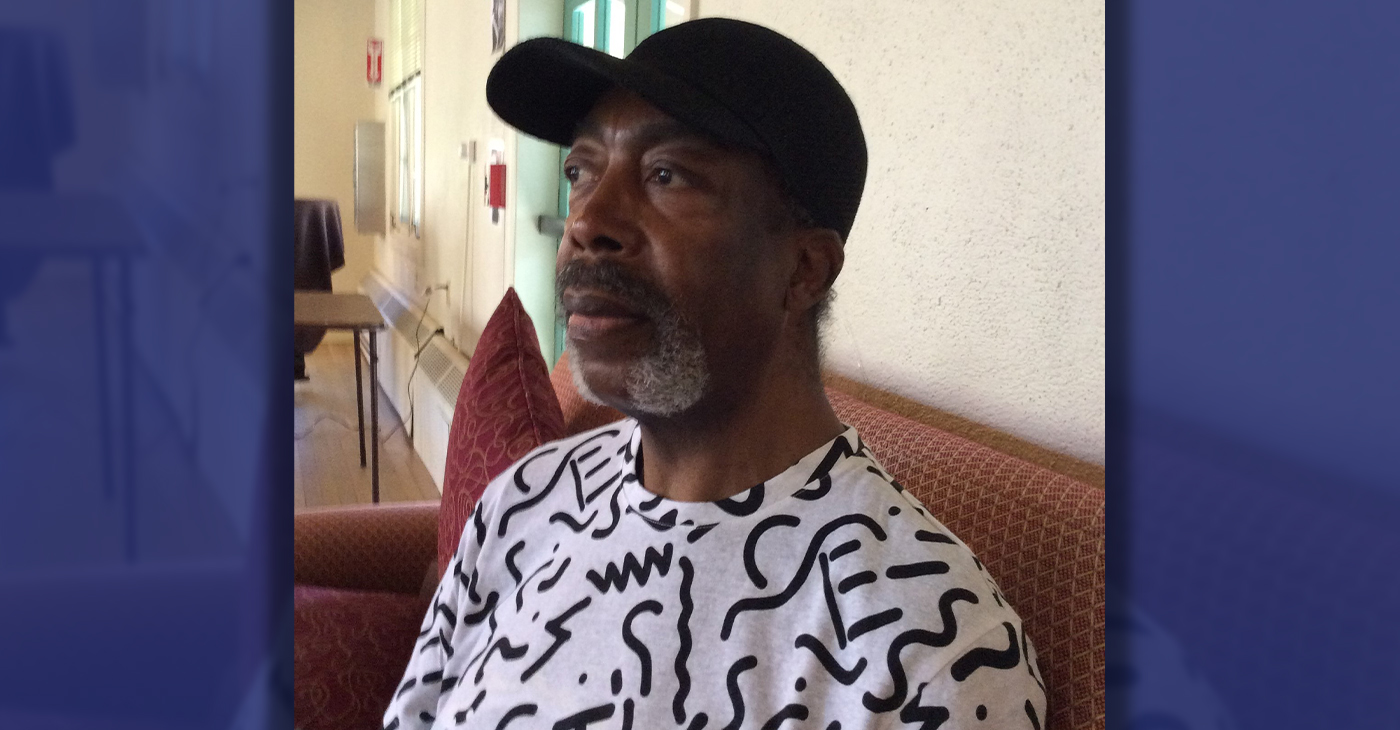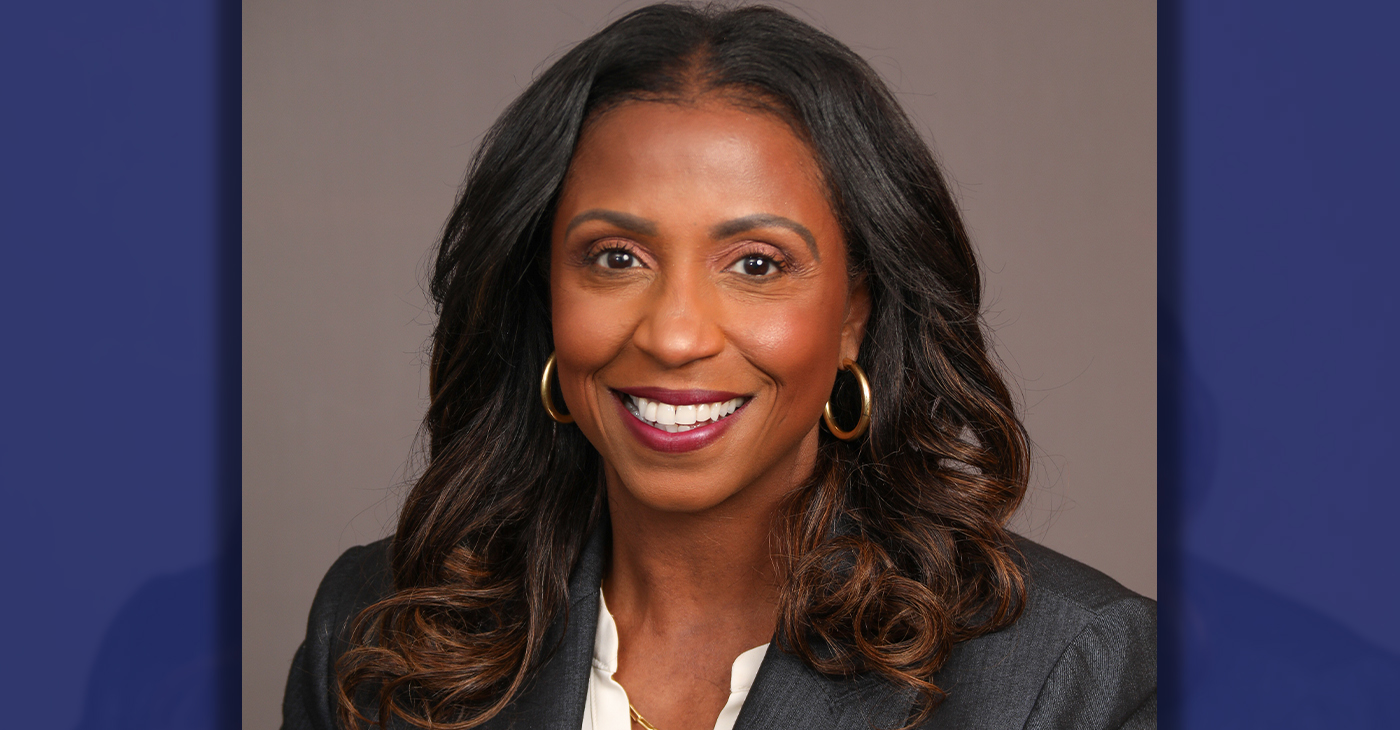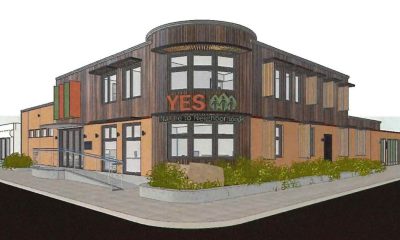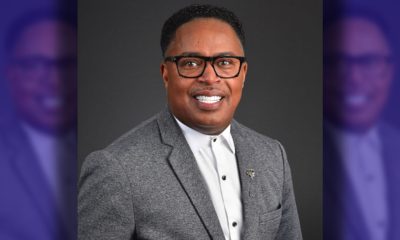Business
Preparing for a Storm: A guide for your business
SOUTH FLORIDA TIMES — Having experience with the impact that a major storm can have on businesses, Florida Power & Light Company (FPL) provides key guidelines to help businesses prepare to weather storms and get back to business as safely and quickly as possible.
By South Florida Times
Having experience with the impact that a major storm can have on businesses, Florida Power & Light Company (FPL) provides key guidelines to help businesses prepare to weather storms and get back to business as safely and quickly as possible.
Plan ahead:
• Ensure your employees’ contact information is up to date.
• Have a plan in place to communicate after the storm passes, e.g. set up a telephone number with a recorded message that will be regularly updated to inform employees of the status of company operations.
• Consider developing a system to authorize re-entry to company facilities after a storm, e.g. I.D. cards and vehicle permits.
• Establish a safe area away from exterior glass windows and doors if you plan to take shelter at your business.
• Determine if your business is in a flood and/or evacuation zone and review evacuation routes, designating an emergency temporary site.
• Identify what you need to secure your building, important equipment and who will help; outline specific tasks and conduct a training session.
• Photograph or record your building or office – inside and out – for insurance purposes.
• DO NOT attempt to trim any vegetation growing on or near any overhead power lines. Only hire qualified professionals to trim trees and other vegetation near power lines.
• Make sure debris is cleared prior to a hurricane warning announcement – trash pickup will be suspended during this time. Trees and other vegetation are among the leading causes of power outages and can become airborne during a storm.
• Bookmark FPL.com/outage and save 1-800-4OUTAGE to your cell phone to report and check the status of your restoration.
• Download the FPL Mobile App in the App Store or Google Play, or text the word “App” to MyFPL (69375). • Save your FPL account number to the notes section of your cell phone, or keep a copy of your FPL bill – which has your account number on it.
• Update the phone number and email address on your FPL account.
• Consider installing a generator in case of power outages. Generator safety
• Read and follow all the manufacturer’s guidelines when using a generator to avoid dangerous shortcuts and ensure safe operation.
• DO NOT directly connect your generator to your business’s breaker or fuse box. Power from a generator connected to a business’s wiring will “back feed” into utility lines – which can severely injure or kill a neighbor or utility crew working to restore power.
• DO NOT run generators inside your business or garage, as they produce potentially deadly carbon monoxide fumes.
• Keep generators away from all open windows to prevent the fumes from entering your business.
• Buy a battery-operated carbon monoxide alarm, which will alert you if carbon-monoxide levels become dangerous.
• Turn off all connected appliances before starting your generator.
• Turn connected appliances on one at a time, never exceeding the generator’s rated wattage.
• DO NOT touch a generator if you are wet, standing in water or on damp ground.
• NEVER refuel a hot generator or one that is running – hot engine parts or exhaust can ignite gasoline.
• Ensure you have plenty of gas safely stored in gas containers to operate your generator.
Before a storm:
• Pay attention to instructions from public officials and the media.
• Secure the exterior of your office and protect interior furniture:
• Identify outdoor equipment, materials and structures that could become airborne and move them to a safe location.
• Park vehicles in safe, protected areas such as a covered garage.
• Secure doors, windows and other openings.
• Move items away from the windows.
• Lock drawers and filing cabinets.
• Unplug all lamps, radios, computers and equipment in case of a power surge; cover important equipment with plastic bags. • Gather any important supplies and documents.
• Charge your cell phone and keep it ready by obtaining portable chargers.
• Make multiple back-ups of computer files and data and store records off premises.
• Run a special voice message informing employees and customers on the status of company operations.
• Close your offices with sufficient time to allow employees to secure their own homes, and inform clients that you’re closing early and when you plan to reopen.
After a storm:
• Make your safety and the safety of your employees a priority.
• DO NOT travel, or ask employees to travel, until it is safe to do so.
• Call 911 immediately to report dangerous or hazardous conditions. Please use the FPL Mobile APP or call FPL at 1-800-4-OUTAGE to report downed power lines or damage to FPL lines, poles or transformers. DO NOT attempt to touch any power lines. Always assume that every power line is energized.
• Read and follow all the manufacturer’s instructions and safety guidelines if you use a portable generator. Remember to NEVER wire your generator to your breaker or fuse box – the power you generate may flow.
back into power lines causing severe injury or death.
• Turn off your circuit breakers, disconnect all electrical appliances and turn off all wall switches immediately in case of interior water damage. Remember to never stand in water while operating switches or unplugging any electrical device.
• Stay away from standing water and debris, which could conceal a live wire.
• DO NOT venture out in the dark because you might not see a downed power line that could be energized and dangerous. • Make emergency repairs only when it is safe to do so. Repairs that prevent looting or further damage should have top priority, but only if the repair can be done safely.
• Take inventory to determine and record losses – based off the photos and recordings you took for insurance purposes.
Staying in touch with FPL following a storm When outages occur, we know our customers want and need information on when their power will be restored. FPL will provide updated restoration time estimates and other progress reports via mobile if a storm strikes:
• FPL’s Mobile App • FPL’s website: FPL.com/storm • Twitter: Twitter.com/insideFPL • Facebook: Facebook.com/FPLconnect • YouTube: YouTube.com/FPL • FPL’s blog: FPLblog.com • FPL’s outage page: FPL.com/Outage • FPL’s outage number: 1-800-4OUTAGE For more storm and safety tips visit FPL.com/storm.
This article originally appeared in the South Florida Times.
Bay Area
Mayor Breed Proposes Waiving City Fees for Night Markets, Block Parties, Farmers’ Markets, Other Outdoor Community Events
Mayor London N. Breed introduced legislation on April 26 to encourage and expand outdoor community events. The first will waive City fees for certain events, making them less costly to produce. The second will simplify the health permitting for special event food vendors through the creation of an annual permit. Both pieces of legislation are part of the Mayor’s broader initiative to bring vibrancy and entertainment to San Francisco’s public right of ways and spaces.

Mayor’s Press Office
Mayor London N. Breed introduced legislation on April 26 to encourage and expand outdoor community events.
The first will waive City fees for certain events, making them less costly to produce. The second will simplify the health permitting for special event food vendors through the creation of an annual permit. Both pieces of legislation are part of the Mayor’s broader initiative to bring vibrancy and entertainment to San Francisco’s public right of ways and spaces.
Outdoor community events are integral to San Francisco’s vibrant culture and sense of community. These events include night markets, neighborhood block parties and farmers markets, and bolster the City’s economy by supporting local businesses and attracting tourists eager to experience San Francisco’s unique charm and food scene.
They offer residents, workers and visitors, opportunities to engage with local artists, musicians, and food vendors while enjoying the San Francisco’s stunning outdoor spaces and commercial corridors.
The legislation will allow for more and new community gatherings and for local food vendors to benefit from the City’s revitalization.
“San Francisco is alive when our streets are filled with festivals, markets, and community events,” said Breed. “As a city we can cut fees and streamline rules so our communities can bring joy and excitement into our streets and help revitalize San Francisco.”
Fee Waiver Legislation
The events that can take advantage of the new fee waivers are those that are free and open to the public, occupy three or fewer city blocks, take place between 8 a.m. and 10 p.m., and have the appropriate permitting from the ISCOTT and the Entertainment Commission.
The applicant must be a San Francisco based non-profit, small business, Community Benefit District, Business Improvement District, or a neighborhood or merchant association. Fees eligible for waiver include any application, permit, and inspection/staffing fees from San Francisco Municipal Transportation Agency, Department of Public Health, Fire Department, Entertainment Commission, and Police Department.
Currently, it can cost roughly anywhere between $500-$10,000 to obtain permits for organized events or fairs, depending on its size and scope. Organizations and businesses are limited to a maximum of 12 events in one calendar year for which they can receive these fee waivers.
Food Vendor Streamlining Legislation
The second piece of legislation introduced will help special event food vendors easily participate in multiple events throughout the year with a new, cost-effective annual food permit. Food vendors who participate in multiple events at multiple locations throughout the year will no longer need to obtain a separate permit for each event. Instead, special event food vendors will be able to apply and pay for a single annual permit all at once.
“Many successful food businesses either begin as pop-up vendors or participate in special events to grow their business,” says Katy Tang, Director of the Office of Small Business. “Giving them the option for an annual special event food permit saves them time and money.”
Currently, food vendors are required to get a Temporary Food Facility (TFF) permit from the Department of Public Health (DPH) in order to participate in a special event, among permits from other departments.
Currently, each special event requires a new permit from DPH ranging from $124-$244, depending on the type of food being prepared and sold. Last year, DPH issued over 1,500 individual TFF permits. With the new annual permit, food vendors selling at more than four to six events each year will benefit from hundreds of dollars in savings and time saved from fewer bureaucratic processes.
“This legislation is a step in the right direction to make it easier for food vendors like me to participate in citywide events,” said Dontaye Ball, owner of Gumbo Social. “It saves on time, money and makes it more effective. It also creates a level of equity.”
Bay Area
Faces Around the Bay: Sidney Carey
Sidney Carey was born in Dallas, Texas. He moved with his family to West Oakland as a baby. His sister is deceased; one brother lives in Oakland. Carey was the Choir Director at Trinity Missionary Baptist Church for 18 years.

By Barbara Fluhrer
Sidney Carey was born in Dallas, Texas. He moved with his family to West Oakland as a baby. His sister is deceased; one brother lives in Oakland.
Carey was the Choir Director at Trinity Missionary Baptist Church for 18 years.
He graduated from McClymonds High with a scholarship in cosmetology and was the first African American to complete a nine-month course at the first Black Beauty School in Oakland: Charm Beauty College.
He earned his License, and then attended U.C., earning a secondary teaching credential. With his Instructors License, he went on to teach at Laney College, San Mateo College, Skyline and Universal Beauty College in Pinole, among others.
Carey was the first African American hair stylist at Joseph and I. Magnin department store in Oakland and in San Francisco, where he managed the hair stylist department, Shear Heaven.
In 2009, he quit teaching and was diagnosed with Congestive Heart Failure. He was 60 and “too old for a heart transplant”. His doctors at California Pacific Medical Center (CPMC) went to court and fought successfully for his right to receive a transplant. One day, he received a call from CPMC, “Be here in one hour.” He underwent a transplant with a heart from a 25-year- old man in Vienna, Austria
Two years later, Carey resumed teaching at Laney College, finally retiring in 2012.
Now, he’s slowed down and comfortable in a Senior Residence in Berkeley, but still manages to fit his 6/4” frame in his 2002 Toyota and drive to family gatherings in Oakland and San Leandro and an occasional Four Seasons Arts concert.
He does his own shopping and cooking and uses Para Transit to keep constant doctor appointments while keeping up with anti-rejection meds. He often travels with doctors as a model of a successful heart-transplant plant recipient: 14 years.
Carey says, “I’m blessed” and, to the youth, “Don’t give up on your dreams!”
Business
Maximizing Your Bank Branch Experience
In a world of online tools that let you make banking transactions with the touch of a button, the idea of visiting a branch might seem unnecessary. However, if you haven’t visited your local branch recently, you might be surprised by what it has to offer. Your branch is much more than a place to deposit and withdraw money – it can offer the opportunity to build valuable relationships with people who can help you achieve financial independence.

Sponsored by JPMorgan Chase & Co.
In a world of online tools that let you make banking transactions with the touch of a button, the idea of visiting a branch might seem unnecessary.
However, if you haven’t visited your local branch recently, you might be surprised by what it has to offer. Your branch is much more than a place to deposit and withdraw money – it can offer the opportunity to build valuable relationships with people who can help you achieve financial independence.
Diedra Porché, Head of Community and Business Development at Chase, talks about how the bank model has evolved to maximize the branch experience for customers; how connecting with your local branch team can help you think differently about money and investing for your future.
How can a customer feel connected to a bank branch?
I love that question because we ask ourselves the same thing every day. Being part of the community means meeting with local leaders to find out what they need from us and then designing our branches around that. For example, at some of our community branches we have what we call a living room where we can host financial workshops, small business pop-up shops or nonprofit organization meetings. We also hire locally. You feel much more connected talking about financial aspirations with people from your community who went to the same high school, place of worship or maybe frequented the same recreation center down the street when they grew up.
How can I build a relationship with my bank?
Customers should feel comfortable sharing their goals, needs and wants with their banker. Also, it helps to remember the Community Manager is there to help solve your finance challenges and build a roadmap for success. You might have a short-term or long-term goal to open a business, build your credit, become debt-free, buy a home, or save for retirement, and our community team can help. At Chase, we strive to make dreams possible for everyone, everywhere, every day. Your financial future starts with building those relationships.
How can customers change negative perceptions they have about managing their money?
Far too often, customers are intimidated when they visit a bank. Our goal is to demystify banking and money myths empowering people to make the right decisions. For example, a big myth is assuming you need a lot of money to have a bank account. You don’t! Another myth is you need to carry a balance on your credit card to build credit — actively using your credit card can demonstrate that you can use credit responsibly but carrying a balance won’t necessarily improve your credit score. Finally, understanding mobile and online banking safety is key. There are so many safeguards and protections in place to guard your personal information and funds.
What’s an easy step one can take to shift their financial behavior right now?
Cultivating self-awareness is a good first step. Start by taking inventory of your spending. Be honest with yourself about what you need and what you want. Too often, people confuse the two, which leads to bad decisions. Rent is something you need to pay. An extra pair of shoes is something you may want but before you buy them ask yourself if that’s the best use of your hard-earned money. Too often, our beliefs and our fears shape our financial realities. If any of those beliefs are limiting your financial behavior, it’s important to question and examine them, and then decide you’re open to learning something different.
What’s one perception about banking that you’d like to change?
I think folks are surprised there are so many resources available and accessible both at our branches and online, it’s always a good idea to visit a nearby branch and speak to a Community Manager or banker. Outside of what we offer in-branch, our teams also work with local neighborhood partners who provide a variety of services to support the community, businesses and residents. I received a unique piece of feedback from an employee who started with the bank and had lived in the same community his whole life. When he visited his local community branch, he said, “Diedra, when I walked in, I felt dignified.” Every time I recount that story, it warms my heart because that’s what we want — we want our centers to belong to the community.
-

 Community3 weeks ago
Community3 weeks agoFinancial Assistance Bill for Descendants of Enslaved Persons to Help Them Purchase, Own, or Maintain a Home
-

 Business3 weeks ago
Business3 weeks agoV.P. Kamala Harris: Americans With Criminal Records Will Soon Be Eligible for SBA Loans
-

 City Government4 days ago
City Government4 days agoCourt Throws Out Law That Allowed Californians to Build Duplexes, Triplexes and RDUs on Their Properties
-

 Activism4 weeks ago
Activism4 weeks agoOakland Post: Week of April 10 – 16, 2024
-

 Activism2 weeks ago
Activism2 weeks agoOakland Post: Week of April 24 – 30, 2024
-

 Community3 weeks ago
Community3 weeks agoAG Bonta Says Oakland School Leaders Should Comply with State Laws to Avoid ‘Disparate Harm’ When Closing or Merging Schools
-

 Community3 weeks ago
Community3 weeks agoRichmond Nonprofit Helps Ex-Felons Get Back on Their Feet
-

 Community3 weeks ago
Community3 weeks agoOakland WNBA Player to be Inducted Into Hall of Fame























































